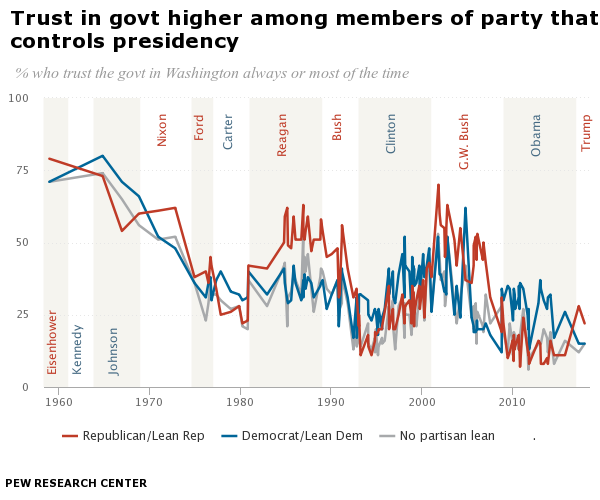Does 18% trust mean 0% legitimacy?

Imagine a government that isn't trusted to do what is right. You probably wouldn't consider it a "good" government. But would you even consider it a legitimate one? That's a question Americans need to answer.
The vast majority of Americans don't trust the federal government:
Only 18% of Americans today say they can trust the government in Washington to do what is right “just about always” (3%) or “most of the time” (15%). (Pew Research Center)
American trust in government has trended downward since the 1950s. It suffered from the Vietnam War, the Watergate scandal, the Iraq war, the Great Recession bailouts, the Snowden revelations, and other undertakings and debacles.
This trust problem transcends party and ideology. Members of the party that controls the government do tend to have more trust in the government than others. But not much. The following chart shows how trust has trended downward for American society as a whole, regardless of party:

This problem is quite severe. Various demographics have dipped into single-digit territory multiple times, including liberal Democrats in 2011, conservative Republicans in 2013, and independents in 2014. The lowest score on record was 4% among conservative Republicans in October, 2010, when only 1 in 25 trusted the government. These single-digit trust scores aren't just unfortunate. They call into question the legitimacy of the government itself.
Let's be clear: this is not about fluffy stuff like likability or competence. This is about fundamental human morality. Americans are answering a question about whether the government does "what is right." They are thinking about justice, integrity, and the rule of law – the cornerstones of government. And they are concluding "no" a huge majority of the time.
If a government isn't moral, is it legitimate? And if it isn't legitimate, should it be allowed to exist? These are quintessentially American questions. In fact, we have answered them before.
